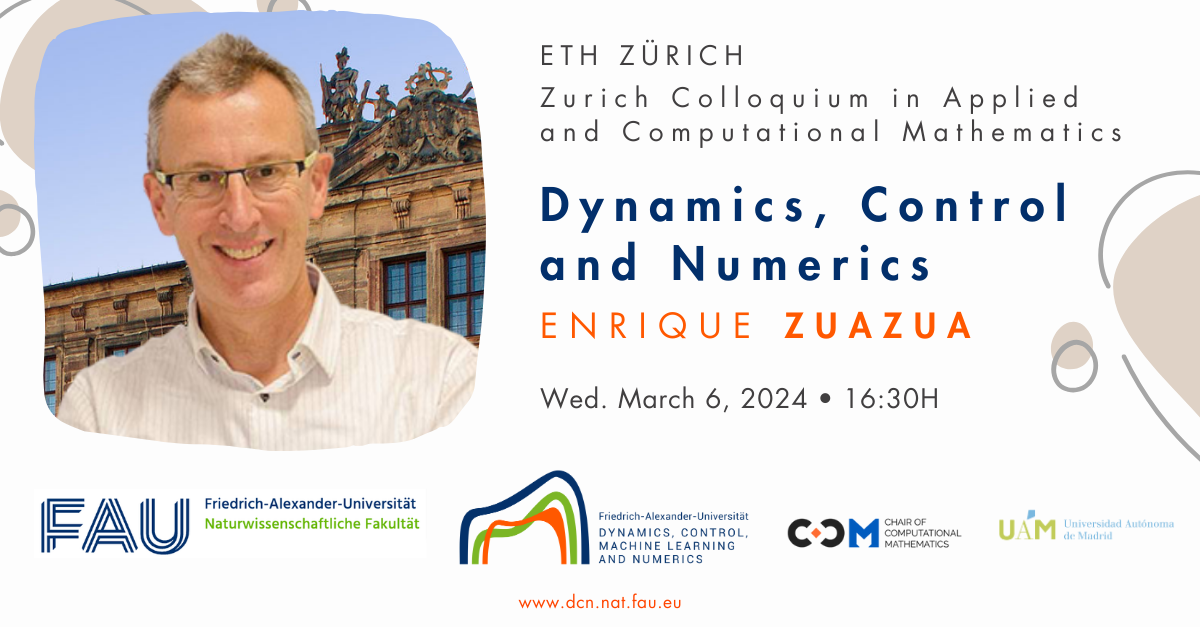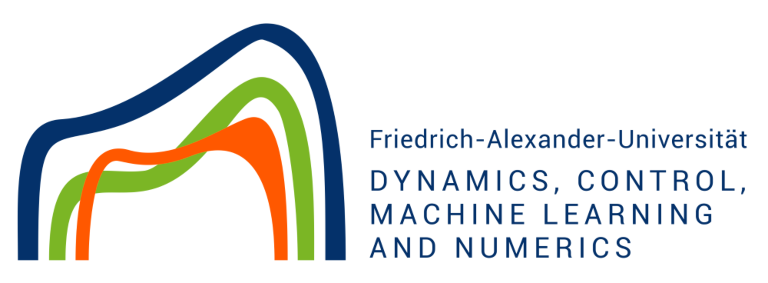
Zurich Colloquium in Applied and Computational Mathematics
On Wednesday March 6, 2024 Prof. Enrique Zuazua will talk on “Dynamics, Control and Numerics” at the “Zurich Colloquium in Applied and Computational Mathematics” organized at ETH Zürich.
Abstract. Norbert Wiener defined “Cybernetics” as “the science of control and communication in the animal and the machine”, anticipating some of the goals and the future development of Artificial Intelligence. The traditional Applied Mathematics program, combining modelling, analysis, numerical approximation, and scientific computing, when facing practical applications, must often be complemented by additional efforts to address control issues, to better understand how dynamics changes when varying free parameters. This frequently leads to new complex and fascinating analytical and computational challenges that require significant unexpected further developments. We will lecture on some recent success stories that arise when facing, for instance, source identification problems, and the regulation of collective dynamics. We shall also discuss the issue of the optimal placement of sensors and actuators, which plays a key role when designing efficient control mechanisms. Control techniques also play an unexpected relevant role in other contexts such as the large time asymptotics for partially dissipative systems in fluid mechanics. We will describe the links between these problems and their analytical and numerical treatment, as one further manifestation of the unity and interconnections of all mathematical disciplines. We shall conclude pointing towards some perspective for future research in connection with Machine Learning. We will begin by briefly discussing the origins of mathematical control theory and machine learning, emphasizing their intimate analogies and links. We will then recall some basic results on the control of linear finite-dimensional systems and the Universal Approximation Theorem. Later we will address the problem of supervised learning, formulated as a simultaneous or ensemble control problem for the so-called neural differential equations, driven by Lipschitz nonlinearities, the activation functions in the neural network ansatz for learning. We will present an iterative and constructive method, allowing to show that such an ambitious goal can be achieved, estimating the complexity of the control strategies. The very role that the nonlinear nature of the activation functions plays will be emphasized. Unnecessary technical difficulties will be avoided. Several open problems and perspectives for future research will be formulated.
WHEN
Wed. March 6, 2024 at 16:30H
WHERE
HG E 1.2 ETH Zürich.
Rämistrasse 101, CH-8092. Zürich, Switzerland
See more details at the official page of the event
_
Don’t miss out our Upcoming events and connect with us!


